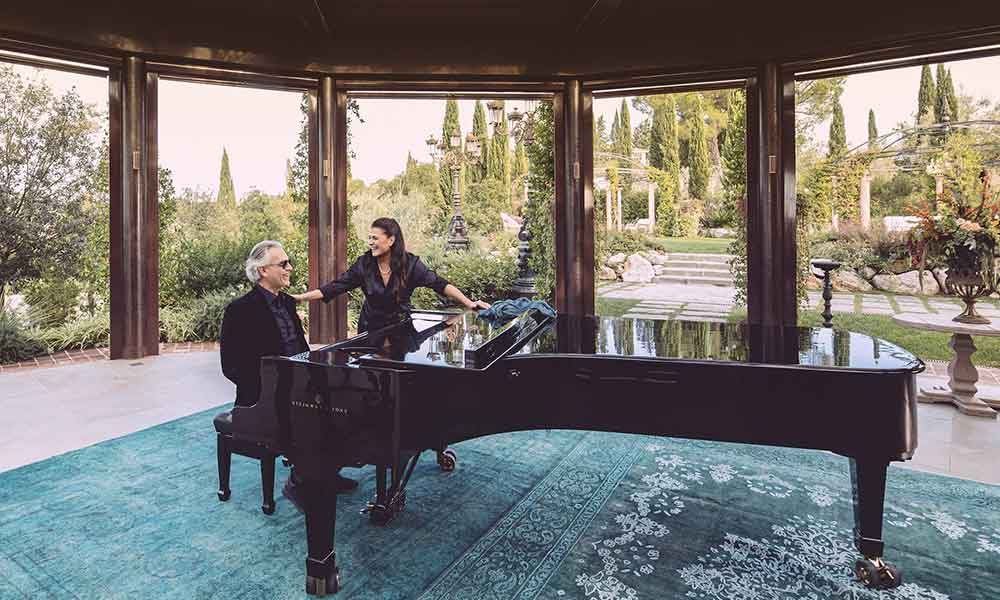Andrea Bocelli and Cecilia Bartoli’s “Pianissimo”: When Two Voices Become a Prayer for Humanity
When Andrea Bocelli and Cecilia Bartoli step into the same frame, music stops being sound — it becomes something sacred. In “Pianissimo,” their voices don’t compete; they breathe together, like two hearts remembering the same dream. The opening notes rise softly, almost like a whisper between worlds, and from that first breath, you can feel the weight of something eternal unfolding. Bocelli’s steady warmth meets Bartoli’s shimmering delicacy, and suddenly, the air itself begins to tremble with emotion too deep to name.

The music video feels less like a performance and more like a devotion. Every glance, every still moment of silence carries the grace of two artists who understand that restraint can be more powerful than roar. The orchestration moves like light through cathedral glass — slow, reverent, unhurried. Bartoli’s phrasing curves around Bocelli’s tone until it’s impossible to tell where one ends and the other begins. Together, they don’t just sing; they consecrate the act of listening.
Reactions around the world have mirrored that reverence. “As long as humans can still produce this kind of beauty, we still have a chance,” one listener wrote, a sentiment echoed by thousands who found themselves weeping without understanding why. Another confessed, “This song makes me feel a new emotion… I’m not sure what it is, but I’m saturated in it.” It’s not exaggeration; “Pianissimo” doesn’t ask for applause — it demands surrender.

In a world overflowing with noise and division, this duet feels like a benediction. It reminds us that art, at its most honest, doesn’t shout — it heals. Bocelli and Bartoli give us more than melody; they give us proof that beauty is still possible, still alive, still fighting to be heard. “Pianissimo” isn’t merely a song. It’s a quiet, unwavering declaration that even in our fractured age, humanity has not forgotten how to feel.


